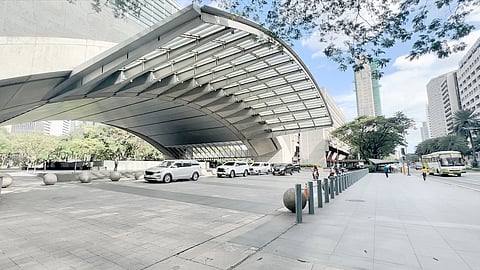
- NEWS
- the EDIT
- COMMENTARY
- BUSINESS
- LIFE
- SHOW
- ACTION
- GLOBAL GOALS
- SNAPS
- DYARYO TIRADA
- MORE

Makati City has collected P15 billion in total revenues as of April 2025, representing 82 percent of its local revenue target for the year, Mayor Abby Binay announced.
Of the total, P14.24 billion came from local sources. The rest came from external funds, according to a report from the Office of the City Treasurer.
Mayor Binay credited the city’s financial performance to its digital governance initiatives, which she said have helped streamline processes, boost compliance, and encourage business confidence.
“The city continues to enjoy a stable revenue base for the past nine years owing, in large part, to our willingness to harness technology to make our transactions with the business sector more convenient, efficient, and transparent,” she said.
She added that the city’s consistent adherence to national policies and regulatory standards set by the Anti-Red Tape Authority (ARTA) and the Commission on Audit (COA) has also helped sustain Makati’s position as a top investment destination.
Makati recently received recognition from ARTA as a fully compliant local government unit under the Electronic Business One-Stop Shop (eBOSS), mandated by Republic Act 11032 or the Ease of Doing Business and Efficient Government Service Delivery Act of 2018.
In the first five months of the year, Makati recorded 1,962 new businesses and 35,019 permit renewals. New entrants contributed P28.25 billion in investment capital, while existing businesses reported over P2.07 trillion in gross sales.
Business taxes accounted for the bulk of local income at P8.73 billion, a seven percent increase from the same period last year. The rest came from real property tax (P4.89 billion), fees and charges (P515.28 million), and economic enterprises (P93.72 million). Additional revenues included P235.91 million in interest income, P397.87 million from the National Tax Allotment, and P129.60 million in shares from economic zones.
Mayor Binay also expressed confidence that the city will once again receive an unmodified audit opinion from COA for fiscal year 2024 — a feat that would qualify Makati’s Accounting Department for the Platinum Award from the Association of Government Accountants of the Philippines.
Since 2016, when Binay took office, Makati’s annual revenue collection has grown from P15.08 billion to over P24 billion in 2024. The Department of Finance has ranked Makati first among Philippine cities for sustaining fiscal autonomy through local sources and for having the highest per capita spending in 2022 and 2023.
The city’s local economy grew 6.3 percent in 2023, outpacing the national GDP growth of 5.6 percent. Its poverty incidence dropped to a historic low of 0.6 percent, while its Human Development Index rose to 0.903—one of the highest in the country.
